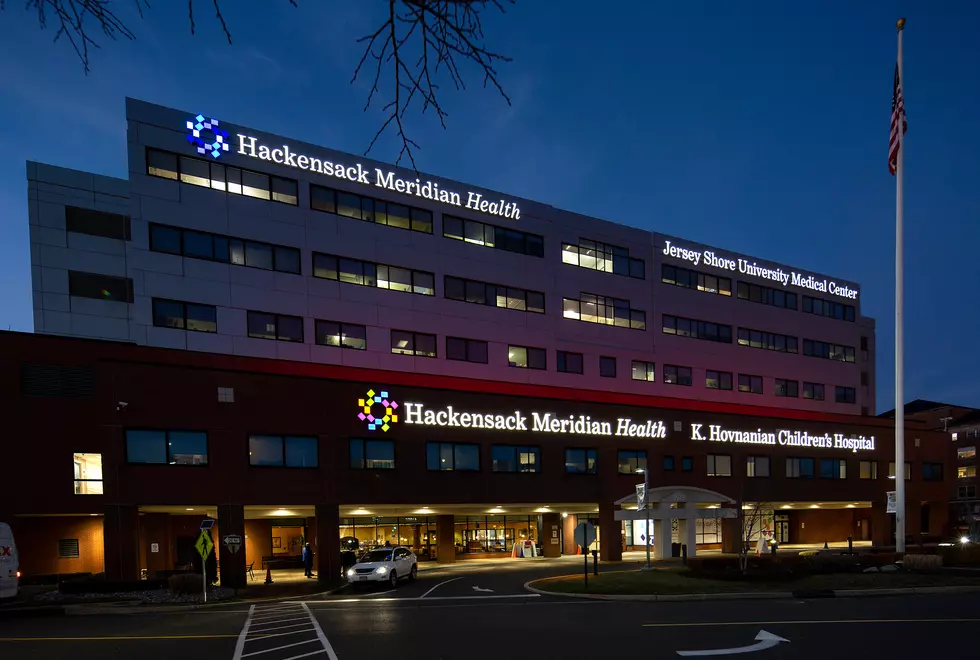
‘Tripledemic’ impacting Jersey Shore families and hospitals
🏥 'Tripledemic' has sent growing number of children and adults to HMH hospitals in Monmouth and Ocean County
🏥 How RSV cases in children compare to last winter
🏥 Ways to slow down the spread of Covid, Flu, RSV in Monmouth and Ocean County
The 'tripledemic' has impacted many individuals, families and others across Monmouth County and Ocean County and certainly beyond to a varying level of degrees of illness, but, as COVID, flu, and RSV continue to present in our communities, it has sent an increased amount of people to hospitals across the Jersey Shore.
Dr. Ken Sable, regional president at Hackensack Meridian Health, explains that at just the four hospitals in this region, the amount of people coming in has gone up.
"We have an incredibly high volume of patients come through our emergency departments of all of our hospitals in Monmouth and Ocean County from Riverview Medical Center to Jersey Shore University Medical Center, Ocean University Medical Center, and Southern Ocean Medical Center, and we're seeing that over the past two months or so, at least," Sable said.
One of the ways everyone can work to help slow down the trend of illness and hospitalizations, Dr. Sable explains, is by considering getting your Flu shot and Covid vaccines especially with additional variants out there.
"It's recommended they do, and people should also strongly consider receiving the newer bivalent Covid vaccine with the rise in additional variant strains," Sable said.
The RSV part of the ongoing 'tripledemic' is impacting a lot of children across Monmouth and Ocean County and in turn, their parents or caregivers, from doing whatever they can to get them healthy and well.
Dr. Sable explains that the HMH Southern Market hospitals have worked to get in front of this as best as possible knowing that RSV impacted children last winter as well.
"Every winter, we have Flu and RSV and Croup and all sorts of different respiratory illnesses mainly in kids, but we're seeing some of this in adults as well," Sable said. "We just need vigilance, we need people to take care of themselves, and do their best to wear a mask if they're contagious and try to stay home and not go to work or school."
Whether it's Covid, the Flu, or RSV circulating the tripledemic across Monmouth and Ocean County, it's critically important to recognize that you're sick or not feeling well and act on it instead of sharing it.
"There's a lot of opportunities for access to care, obviously we have many physicians and offices throughout the region, we have tele-health services as well, and, you can find information on our website for how to reach them, but, generally, if a person has a high fever, difficulty breathing, incapacitating headache, nausea, vomiting, diarrhea that's unrelenting -- they should go to the emergency department and if they're really sick, call 9-1-1," Sable said.
For less severe symptoms, Dr. Sable recommends visiting an urgent care or a primary care physician and along with that advice, stay home if you're not feeling well.

If you're experiencing low to mild symptoms related to Covid, the Flu, or RSV as the 'tripledemic' lingers through the winter in Monmouth and Ocean County, then Dr. Sable explains that you should consider seeing a primary care physician or urgent care, but, if the symptoms are indeed severe, heading to the emergency department is your best option at that point.
"Mild type symptoms that are not debilitating or incapacitating, less severe can generally be treated on an outpatient basis through either urgent care centers or directly through appointments with people's private community physicians. If somebody has a high fever, any difficulty breathing, pounding headache that won't go away with some traditional medicine, persistent nausea, vomiting, or diarrhea, where they're unable to stay hydrated -- those are symptoms that would generally drive people to seek out emergency department care," Sable said. "We stand ready and willing to help, our emergency departments have been quite busy dealing with people with many of these types of symptoms."
You can learn more about what HMH Southern Market is doing in handling this 'tripledemic' from Dr. Ken Sable, right here.



